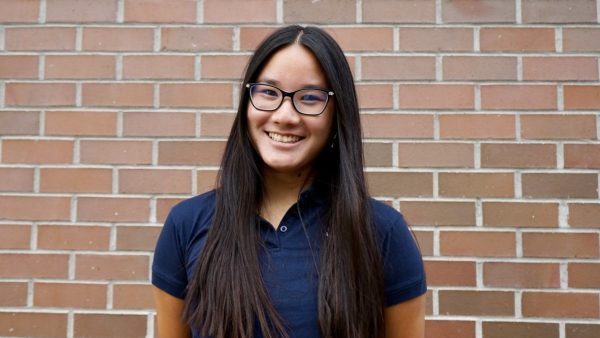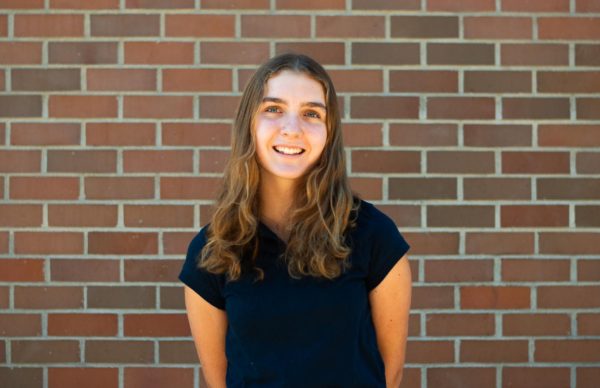In a school year already full of changes and surprises, period one of the sophomore English II class has had an even more tumultuous experience. Bruna Lee, the class’s original English teacher, left Castilleja three weeks before winter break due to struggles with her long transit from Oakland to Palo Alto.
Because Lee had also just joined Castilleja in the fall of 2023, this move surprised her students, raising questions about how the class would function through the rest of the semester.
However, students also understood her decision: “I was sad about her moving because I liked her, but it also made sense because she had a super long commute,” Maddie Chen ’26 said. “Still, I was a little nervous because I feel like that was at a time when it was almost right in the middle of the semester.”
Lee continued to plan lessons and grade assignments remotely for the remainder of the semester, while Christina Gwin took over as a substitute. The disconnect proved to be a challenge for the class.
“It was harder to communicate with her. Even though we could email her, it was just like a lot of work just to ask simple questions compared to when she was in class. And more clarity was lost in all the confusion of the transition,” Cali Scolnick ’26 said.
When teachers leave or switch classes, especially in the middle of the school year, the impact is felt everywhere, from content to grades.
But students also said they appreciated the ways Lee continued to support students remotely: “One thing that Ms. Lee did that was really nice was I got to Zoom with her about my writing, so that I could actually talk to her in person, and she was super responsive to emails and all that type of stuff,” Chen said.
With a subject like English, which offers room for constant interpretation and differing “answers” compared to more objective subjects like math, some students said they felt the teacher’s approach plays a major role in influencing what students learn and take away.
Nola Doorley ’26 said Lee’s disinterest in poetry shaped her experience in the unit: “That was a bit discouraging to me because, even though I’m not a fan of poetry either, I think having the teacher not say that and having them be open about it, just to teach you from sort of an unbiased standpoint, would be nice and more conducive towards learning,” she said.
But she said that Gwin, who started as a substitute in the middle of the poetry unit, expressed a different opinion.
“Gwin had such a different stance on poetry. At least from what I gathered, she really liked it, and Ms. Lee did not, so having that switch right in the middle of the unit was pretty tumultuous,” Doorley said. “And then when reading and analyzing we went in-depth on different levels because of how much the teachers themselves enjoyed it.”
It’s clear that the differing personal ideas of teachers were especially influential in this English class, making for an incongruous learning experience throughout the year.
Approach to grading and assessments proved to be another big difference: “There were just different expectations and different timelines, and I think that made it really hard,” Doorley said. “I think maybe that’s a bigger problem, having so many teachers teach the exact same class but having different standards and different expectations.”
In the second semester, period one now has Matthew Callahan as their teacher. He has brought some changes, but they’ve generally made for a more positive learning experience.
“I appreciate that the same general structure exists, but with more clear expectations and outlines on standards. The environment’s still a comfortable and safe space, the same way with Ms. Lee, which I also appreciated, especially for English,” Chen said. “I was nervous, obviously, to have a new teacher because I think that’s always the case. But I’m glad that the same dynamic in the room among our class has stayed.”
Still, teachers leaving proved to be the root of the problem. “I think the real problem with her leaving was just all the transition periods between different teachers,” Doorley said. “I still don’t really know Mr. Callahan’s grading style. And I got to know Ms. Lee’s, but now we’re just starting from scratch again.”
All this points to some larger difficulties facing Castilleja. With a rise in teacher turnover in recent years, students are experiencing these kinds of rocky changes more and more. Thus, it’s key that consistencies are cemented among grading standards, curriculum, and assignments in the same classes. These inconsistencies are an issue students have been calling for change on since the introduction of standards-based learning. Hopefully, the administration and teachers will do their part as well, creating a smoother learning experience for the whole Castilleja community.




